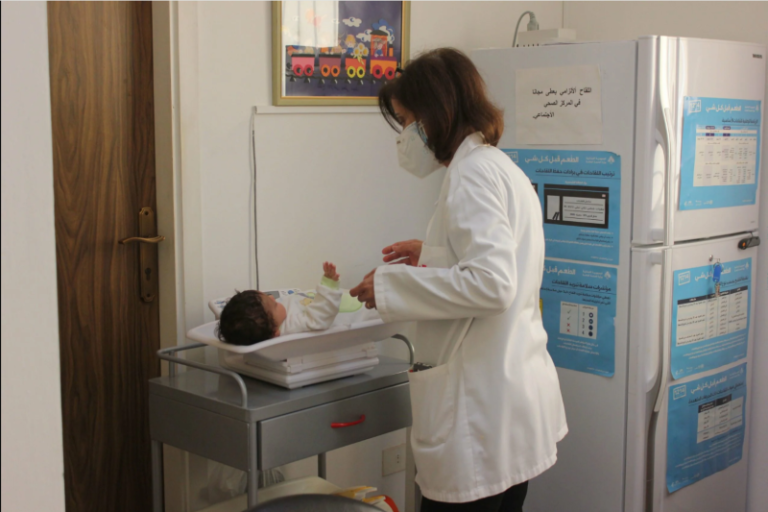PhD student Rawya Khodor successfully defends thesis on health system resilience
20 February 2024
Congratulations to Rawya Khodor who has successfully defended her thesis, ‘Health system resilience through coordination and learning: The NGO ecosystem of primary healthcare in Lebanon'

Image credit: Caritas, Lebanon
Rawya Khodor has successfully defended her doctoral thesis, arguing that an NGO ecosystem can contribute to health system resilience if it involves specific configurations of NGO-government, NGO-donor, and NGO-NGO coordination and learning. Her thesis centres on how coordination and learning in a Lebanese NGO ecosystem contribute to health system resilience.
Academics and practitioners have called for understanding relationships within the frame of international aid, health system governance, and the practice of care. Similar calls exist to understand the contribution of relationships between actors within a health system to health system resilience. However, limited empirical research tackles these calls. In countries where non-governmental organisations (NGOs) deliver a substantial share of healthcare, particularly through contracting out, the main actors involved in strengthening health system resilience encompass these NGOs, the government, and donors. Nevertheless, scant exploration also exists on how some relationships between these actors, within an NGO ecosystem, contribute to health system resilience.
She examines these relationships in the context of Lebanon’s primary health system, predominantly managed by NGOs through contracts and heavily funded by donors. She employs mixed methods: document review, surveys, semi-structured interviews, and peer interviews. Using the complex adaptive systems (CAS) theory, she focuses on analysing the contribution of these relationships to the resilience capacities of the health system. She also examines how power dynamics and other factors influence these relationships.
Her thesis emphasises the government’s regulatory role in health systems involving private actors, such as NGOs. The government can regulate NGOs’ behaviours through NGO-government coordination and learning while allowing them a degree of operational autonomy. It also underscores the donors’ role in tailoring and implementing flexible approaches to development, which prioritise learning to strengthen health system resilience. Donors can enable flexible NGO-donor coordination, as well as regular and reciprocal NGO-donor learning. The government and donors can also promote NGO-NGO coordination in a competitive NGO environment. These relationships strengthen the resilience of the NGO ecosystem and of the health system.
In sum, this thesis emphasises the government’s regulatory role in health systems involving private actors, such as NGOs. It also underscores the donors’ role in tailoring and implementing flexible approaches to development, which prioritise learning to strengthen health system resilience. The thesis also calls for recognising the governments’ and donors’ roles in creating an NGO ecosystem in which NGOs simultaneously compete and coordinate, further strengthening health system resilience.
Are you interested in studying a Development Planning MPhil/PhD at UCL?

Discover more about the course and the career opportunities it could unlock by visiting the Development Planning MPhil/PhD webpage.
 Close
Close

